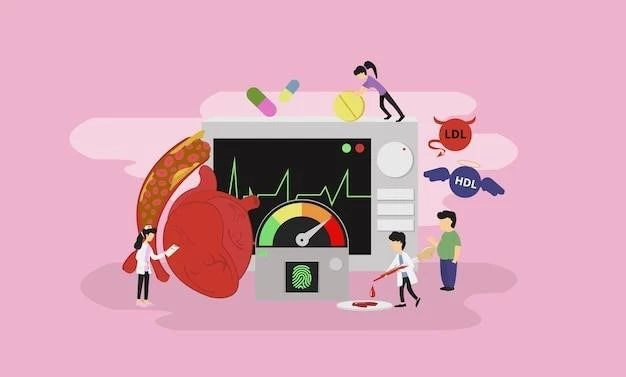Cholesterol Esterification Disorder can be caused by mutations in the LIPA gene‚ leading to the accumulation of cholesterol esters. Other causes may include enzyme deficiencies or metabolic disorders.
Causes of Cholesterol Esterification Disorder
Cholesterol Esterification Disorder can be caused by mutations in the LIPA gene‚ leading to the accumulation of cholesterol esters. Other causes may include enzyme deficiencies or metabolic disorders.

Symptoms and Diagnosis of Cholesterol Esterification Disorder
Common symptoms of Cholesterol Esterification Disorder include hepatosplenomegaly‚ anemia‚ and neurological issues. Diagnosis involves genetic testing‚ lipid profiles‚ and imaging studies to assess organ involvement. An early diagnosis is key to managing the condition effectively.
Treatment Options for Cholesterol Esterification Disorder
Treatment aims to manage symptoms and prevent complications. Enzyme replacement therapy and hematopoietic stem cell transplantation are potential options. Consult with a healthcare team for personalized treatment plans. Regular monitoring and support are crucial for effectively managing Cholesterol Esterification Disorder.
Impact of Cholesterol Esterification Disorder on Health
Cholesterol Esterification Disorder can affect various bodily systems‚ leading to organ damage‚ anemia‚ neurological issues‚ and impaired growth. It can impact quality of life and requires lifelong management. Regular medical follow-ups and adherence to treatment plans are essential for minimizing the health impact of this disorder.
Genetic Factors in Cholesterol Esterification Disorder
Cholesterol Esterification Disorder is primarily caused by mutations in the LIPA gene‚ impacting the lysosomal acid lipase enzyme. These genetic factors lead to abnormal cholesterol metabolism and esterification. Understanding the genetic basis is crucial for diagnosis and targeted treatment approaches tailored to individual genetic profiles.
Research Advances in Cholesterol Esterification Disorder
Ongoing research in Cholesterol Esterification Disorder focuses on developing novel treatments‚ understanding the underlying mechanisms better‚ and improving diagnostic techniques. Advances in gene therapy‚ enzyme replacement‚ and stem cell therapies offer promising avenues for future management of the disorder. Stay informed about the latest research findings to explore new options for managing this condition.
Management Strategies for Cholesterol Esterification Disorder
Effective management of Cholesterol Esterification Disorder involves a multidisciplinary approach. Regular monitoring of lipid levels‚ liver function‚ and overall health is essential. Following prescribed treatment plans‚ adhering to dietary restrictions‚ and engaging in physical activity can help manage symptoms and minimize complications. Work closely with healthcare providers to optimize your management strategies for better long-term outcomes.
Lifestyle Recommendations for Cholesterol Esterification Disorder
Optimizing your lifestyle can complement medical treatment. Maintain a heart-healthy diet low in cholesterol and saturated fats. Regular physical activity can help manage weight and improve overall health. Avoid smoking and excessive alcohol consumption. Stay informed about your condition and work with healthcare providers to establish a healthy lifestyle routine tailored to your specific needs.
Conclusion
In conclusion‚ Cholesterol Esterification Disorder is a complex condition with genetic origins that impacts various aspects of health. Early diagnosis‚ personalized treatment plans‚ and lifestyle modifications are key to managing the disorder effectively. Stay proactive in your healthcare‚ follow medical advice‚ and make positive lifestyle choices to optimize your well-being while living with Cholesterol Esterification Disorder.
